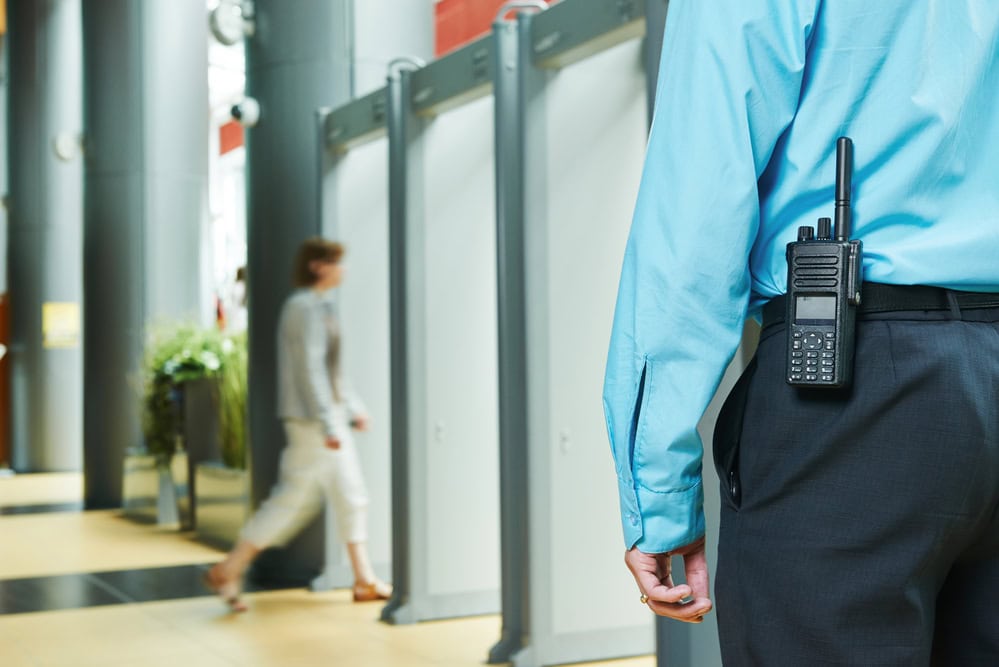Corona Crisis: Rights & Duties as an Employee in the Office and Home Office
Due to the measures imposed by the federal government, which often change (too) quickly, such as employment bans or exit restrictions, it is becoming increasingly difficult to maintain an overview of rights and obligations in the world of work. The editors of SAFETY-PLUS therefore spoke to Luca Cirigliano, Central Secretary of the Swiss Federation of Trade Unions (SGB), about occupational safety, rights and obligations as an employee in the office and working from home in times of coronavirus.

Mr. Cirigliano, many employees, but also employers, are uncertain how to deal with the current situation. What is the legal situation and what instructions can the employer issue?
With its specific ordinance, the Federal Council has closed certain companies, ordered mandatory home office or employment ban for particularly at-risk employees with 100 % continued salary payment. Unfortunately, this protection for high-risk employees has now suddenly been changed again: here the Federal Council urgently needs to go back over the books. For the remaining companies, general recommendations were made regarding hygiene, distances in meeting rooms, and again to the most comprehensive possible Home office activity issued. These directives or orders must be fully incorporated by the employer, the employees must be informed and the employer is obliged to implement the corresponding directives and organizational steps and measures without delay. For this purpose, there is the instrument of the handbook for operational preparation in the Pandemic Casewhich is provided by SECO.
I would like to point out that under the current situation, the employer has an increased duty of care under the Epidemic Act in everything that concerns health protection and personal protection of the employee. The federal measures are mandatory and must be implemented immediately in the workplace on a case-by-case basis.
It is to be hoped that employers will inform themselves properly with the responsible offices and apply for short-time work compensation before they dismiss employees unnecessarily!
The type. 328 OR and Art. 6 ArG. oblige employers to protect the health of employees as best as possible. What does this now mean in practice, for example in the retail trade?
Every industry and company that has not been closed by the Federal Council can operate according to the current state of knowledge if the corresponding specific measures are actually taken in the company. Every industry and business can and must conduct a risk analysis and then define measures accordingly based on the hygiene and social distancing requirements of the federal government. Here, the industry and company group solutions and the safety officers in the company can be a great help. The federal government also has to Store space specific specifications made. It is important that there are not too many customers in the store. Here, access restrictions and counting systems make sense. Direct, overly close contact with customers should also be avoided, e.g. by installing Plexiglas at the checkouts.
When paying, cash should be dispensed with and contactless payment should be used wherever possible. The psychosocial stress on sales staff should not be underestimated at the moment: angry customers unfortunately unload their frustration on the staff. Appropriately trained security personnel are needed here, as well as care to ensure that not too many customers are in the store at the same time, which in turn causes stress. The federal government should now demand industry-specific fact sheets and checklists for the industries, including the retail trade.
What rights do employees of companies with public traffic (food trade) or also PPE manufacturers have if the health protection of the employees is not granted or cannot be guaranteed?
All requirements of the FOPH and SECO must be respected. In case of doubt, the cantonal labor inspectorates or SUVA should be contacted. But the uncertainties in the workplace are great: SECO should now finally make industry-specific fact sheets and checklists.
Addition on 08.04.2020: The Seco has meanwhile published industry-specific fact sheets and checklists created.
In the worst case, an authority can close down the business altogether. What is the current practice?
This is possible as a last resort, yes. The Federal Council has closed certain businesses by decree, based on the epidemic law. In principle, however, it should be possible for industries not closed by decree to implement the safety measures of the federal government and to work safely. However, this naturally requires the employer to take precautions and, depending on the circumstances, also drastic measures if the employer does not implement these measures. The implementation of the Health protection measures as well as possible closures in the event of violations are fully justified in view of the threat to legal interests such as life and limb and public health.
Employment contract law also causes problems: Example: one has booked (Easter) vacations for a long time, which cannot be taken or one cannot travel (out). Are employees entitled to a postponement or do they have to "sit out" the vacations at home?
The CO gives the option of not taking the vacation if there is no longer any "recreational value". However, whether this is really not the case would have to be examined on a case-by-case basis. In times of a pandemic, however, a certain degree of goodwill is recommended, both on the part of the employer and the employee.
Is it necessary to work in a home office if there are (safe) alternatives in the company and what do employees have to pay particular attention to in terms of legal aspects?
In principle, the Federal Council prescribes home office if it is possible. This is also in order to avoid commuting in particular and to empty public transportation (trains, buses, streetcars) where Risk of infection exists. If safe working conditions are guaranteed in the office - i.e. individual offices, compliance with hygiene measures including, for example, regular disinfection of door handles, jointly used equipment or furniture, and social distancing with colleagues - and it is possible to get to work on foot or by bicycle, it is not mandatory to work from home if the employee does not wish to do so.
However, I personally recommend home office in any case, unless there are compelling operational or organizational reasons against it. For particularly vulnerable people, home office is generally mandatory; if this is not possible, the Federal Council has imposed a ban on employment with full pay.
Example catering sector, where also all establishments for the time being (as of 3/30/20) must remain closed until April 19: Can the employer simply terminate employees now and what rights do you have against this?
Dismissals are often unnecessary and should be avoided at all costs in view of the generous short-time work compensation practice in Switzerland and the new rules on the assumption of continued salary payments by the federal government. It is to be hoped that employers will properly inform themselves here with the responsible agencies and Short-time compensation apply before they lay off employees unnecessarily! The Federal Council also implements various other forms of support especially for hard-hit SMEs, e.g. guarantees. Otherwise, the usual deadlines and blocking reasons for a dismissal apply, as well as the rules for mass dismissal and possibly for social plans, if the conditions are met.
What advice do you have for employees in the "gig economy" - i.e. drivers for UBER or Amazon, whose income is likewise eliminated or who may find themselves in a risk situation when driving with customers?
The platform employees of the cab services UBER are, according to SUVA as well as the labor court of first instance in Lausanne, completely normal employees. They should now report to the SVA and, if necessary, take legal action against UBER. UBER owes the whole social security protection, like all other employers. UBER is also responsible as an employer to comply with federal requirements and to protect its employees. Here, action by the federal government, the labor inspectorates as well as the police, which makes commercial controls in the cab industry, is indicated. For the protection of the chauffeurs and drivers, but also of the public.
It is taking revenge that the federal government and the social insurances have remained inactive against UBER for such a long time and therefore no legally binding judgements exist. This now increases the legal uncertainty, the costs for the general public and could have fatal health consequences for all involved.
Thank you very much for the interview!
Swiss Federation of Trade Unions SGB
Protection of employees at particular risk must be guaranteed!
More link tips from the editors:
Seco leaflets and checklists (as of 08.04.2020):
AHV/IV (as of 24.03.2020): Information for employers and self-employed persons in connection with the coronavirus
SVA Zurich Info on short-time work registration: The most important thing for employers
Info from the federal government: Bridging loans for companies









